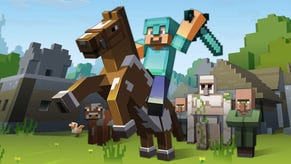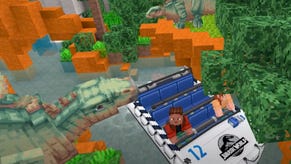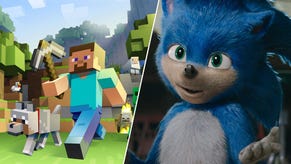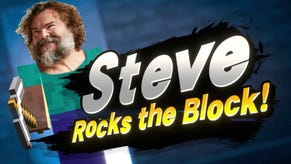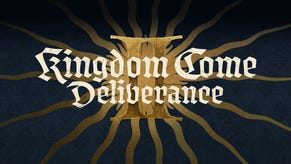School of hard blocks: educating children through gaming
Penelope Trunk, an American mother, has allowed her sons to educate themselves with video games. David Owen speaks to the woman who used Minecraft as a spelling tool.
“Why aren’t people worried that kids go to school all day, then come home and do homework for hours? It’s unnatural. If you look at what’s better for kids, homework or video games, it’s video games. Hands down.”
Remember the days when your mum insisted that you skip school and play video games all day? No, neither do I. Yet for the children of Penelope Trunk, controversial US blogger and entrepreneurial life coach, it’s an everyday reality.
While other children traipse off to school five days a week and occupy their evenings with homework, Penelope’s two sons, aged seven and ten, remain at home on their Wisconsin farm, their education left entirely in their own hands. More often than not, this involves playing Minecraft.
“I started doing research into school reform because I was so p**sed off about the state of our schools,” Penelope tells me. “All the research pointed to homeschooling. It pointed to self-directed learning. Kids learn best when you let them learn how they want. So I took my kids out of school and, surprise surprise, they wanted to learn by playing video games all day.”
As a product of a traditional education, I was ready to balk at Penelope’s contentious approach to homeschooling. Yet it soon becomes clear that it isn’t merely a fanciful protest against a struggling US education system. Penelope is adamant that video games are giving her sons a more effective education than they would receive in school.
“One of the scariest things I did was not teach my son to read. He learned to read from video games. The only way he could tell when a Pokémon was going to evolve was to find out at what level that happens. He figured it out. In Minecraft the only way to progress is to enter commands. If they don’t learn it, then they can’t get where they want to go. My son learned to spell from Minecraft.”
It’s a bold claim that has been met with derision from some quarters. Indeed, it’s difficult to believe that as a child I could have learned to read from the likes of ‘But our Princess is in another castle!’
Penelope is defiant, and attributes much more to video games than just teaching her sons to read and write. Her sons have learned how to run their own small businesses from their game-playing experiences.
“If you think about it, all video games are little businesses. They have their own economies. You have to figure out how to get people to do what you want.” As a result, Penelope’s sons now earn their own money to put towards their gaming costs. “My older son sells pigs and goats, my younger son sells eggs. It’s not enough to buy all the stuff they want, but they contribute.”
The theory begins to make sense when I realise that, although Penelope believes unequivocally in the educational value of video games, her ideas are not exclusive to them. It’s about incentivising children to learn in a way that they find engaging – something that can’t always be said about school. Brimming with natural curiosity, children will seek learning on their own terms. Video games just happen to be an appealing option.
“If you worry about kids making bad choices, the first thing you should do is give them the option to make good choices. Clearly you can learn to type faster by playing a video game than what they teach in school. Clearly kids will learn to problem solve if you put them in front of a video game instead of spoon-feeding them class material and giving them a test.”
Good problems, bad problems
I begin to worry that we’re dealing too much in generalisations. While Penelope’s sons favour games with more pronounced educational and creative virtues such as Minecraft, can other genres, such as shooters, be educational? Penelope prickles at the question.
“What are good problems and what are bad problems? Anything that makes you solve problems and work hard to figure out the game and progress is educational.”
In some ways it sounds like a contemporary take on archaic walkabout rites of passage, the classic Pokémon trainer leaving home scenario, liberal parenting gone mad. Certainly Penelope will have a hard time convincing people of her methods. Statistics show that only 58% of parents believe that video games are educational.
“They’re morons,” says Penelope of the sceptical. “Those parents are morons. There’s plenty of academic research that shows the educational value of video games. What’s the difference between a book and a video game? If your kid reads books for 18 hours a day, is he a social loser? Yes. So in the same way if your kid plays 18 hours of video games a day, maybe your kid’s a loser. But there’s no difference in the value of the material.”
In fact, Penelope doesn’t believe that kids will choose to play video games all their waking hours, in the same way that she doesn’t think it’s healthy for them to be stuck in school all day. “I think the best thing you can do is respect a kid’s ability to choose how they want to learn. Kids won’t play 14 hours a day. Their necks will hurt, they’ll want to eat, play with their friends.
“Why aren’t people worried that kids go to school all day, then come home and do homework for hours? It’s unnatural. If you look at what’s better for kids, homework or video games, it’s video games. Hands down.”
While tough to swallow at first (for parents, at least), Penelope’s views are merely at the more extreme end of a nascent body of research.
In February, PhD students at The University of Padua published a paper showing that playing action video games (they tested using Rayman Raving Rabbids) helps dyslexic children to read more quickly. Penelope herself refers on her blog to a study from Iowa State University which shows that surgeons made fewer procedural errors if they played as little as three hours of video games a week. The Netherlands-based Leiden University has just released a study showing that FPS games can improve memory capacity of players.
Such research is not enough to vindicate Penelope’s idiosyncratic approach to homeschooling. Yet beneath the abstruse ideas and spiky rhetoric, it offers a fascinating, relevant case study.
Penelope sums it up for me. “Kids learn best when they’re self-directed. All learning is about incentivising a child. Each of us is an excellent learner if we’re learning in a way that interests us. For kids, that can be video games.”
It’s hardly time to dismantle our school systems and replace textbooks with PlayStations. Certainly there needs to be more thinking in terms of differing financial circumstances, availability of working parents, the dangers of children left to their own devices in different environments. However, it seems that there is something to be said for the promotion of heterogeneous learning, and video games are perfectly positioned to play a prime role.
Games have been stigmatised for so many years as the scourge of youth in countless different ways, but Penelope’s success with her own sons, coupled with a growing body of mainstream research, shows that it might be time to reconsider how we think about the application of video games in our children’s lives.
[Image]



